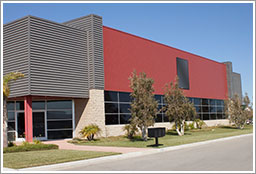 Cincinnati Insurance stated in a recent blog post that losses occurring on property you own can affect your livelihood and that of your tenants. They can also affect your insurance rates and eligibility. Without the proper controls in place, you could be saddled with the responsibility of owing for injury or damages that you did not cause.
Cincinnati Insurance stated in a recent blog post that losses occurring on property you own can affect your livelihood and that of your tenants. They can also affect your insurance rates and eligibility. Without the proper controls in place, you could be saddled with the responsibility of owing for injury or damages that you did not cause.
Recognize the Risks
When you understand the risks you face as a property owner and lessor, you can better manage them. Consider these scenarios:
- Natural perils – A tornado sweeps through town, damaging your building and your tenants’ contents.
- Fire – A grease fire starts in a restaurant at one end of your building. Before it is extinguished, fire damages multiple units and tenant contents.
- Third-party injury or illness – A patron slips and falls in the parking lot, spraining her ankle.
- Change in occupancy – A restaurant replaces a retail store in one of your units. As a property owner, you want to determine if the current sprinkler system is able to handle the demands of a restaurant.
- Change in tenant operations – A retail craft store expands its operations to include pottery making. With this expansion, your tenant adds kilns to heat-treat ceramic projects.
- Vacancy – Your unoccupied building is vandalized, resulting in damaged property.
Review the Responsibilities
A well-designed lease agreement can assist owners in transferring responsibility for payment due to bodily injury or property damage to the legally responsible party. Consult with legal counsel when evaluating your current lease or other formal contract. When consulting with your attorney, consider whether your agreement:
- is signed by all tenants
- contains appropriate anti-subrogation wording and indemnification–hold harmless provisions favorable to you and acceptable under your state’s laws
- authorizes you to develop, change and enforce rules and regulations for the premises
- defines which areas you control and which the tenant controls
- defines the maintenance obligations of all parties while specifying the scope of the operations and the steps you will take if the tenant defaults on these obligations
- grants you the right to inspect the leased premises for conformance with the lease provisions concerning maintenance and to point out to the tenant any obvious hazards
- requires the tenant to obtain permission before performing any building alterations
- contains provisions regarding use of hazardous substances, dispensing of liquor and other activities that increase the risk of loss
- requires service contractors who come on your premises to provide certificates of insurance verifying adequate limits of insurance and appropriate state licenses, where applicable
- requires tenants to obtain specified liability insurance on behalf of the owner, with you listed as an additional insured on a primary basis. Make sure you obtain proof that the tenant has acquired and maintains all required insurance
Click here to read the full post by The Cincinnati Insurance Company, or contact a KnowledgeBroker at R&R for additional information.

